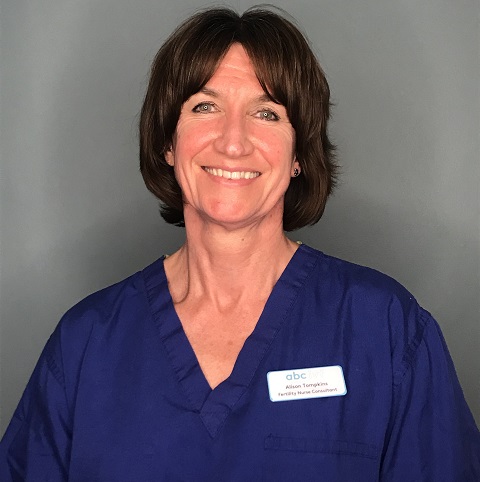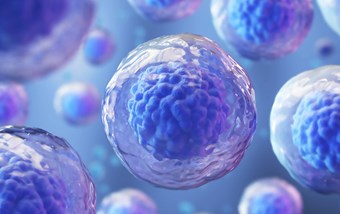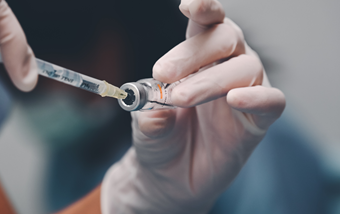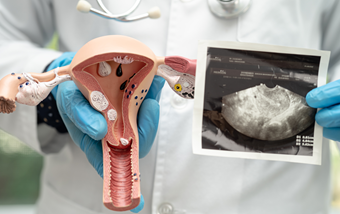In September we recognized PCOS (Polycystic Ovary Syndrome) awareness month. It has a significant impact to share useful information about PCOS during the month. However, we have a duty to continue to educate and spread awareness throughout the year. In our new blog series, we have accumulated answers to frequently asked questions from our weekly Virtual Information Event. In association with September’s dedicated cause, our first topic focus is PCOS. With the help of Fertility Nurse Consultant, Alison Tompkins, we have provided answers to the questions asked by you in the Q+A session of the event.
What is PCOS?
PCOS, is a hormonal disorder that affects the ovaries. It is characterized by a range of symptoms and imbalances in the reproductive and metabolic systems. One of the primary hallmarks of PCOS is irregular or absent menstrual cycles, often accompanied by anovulation, where the ovaries do not release eggs regularly. Elevated androgen hormones, such as testosterone, can lead to physical manifestations like acne, excess hair growth, and male-pattern baldness. PCOS may also involve the formation of small, fluid-filled cysts on the ovaries, which can be detected through medical imaging.
The primary reason for this is the condition's disruptive impact on the menstrual cycle and ovulation. Irregular or absent periods and anovulation (the lack of regular egg release) are common in PCOS, significantly reducing the chances of natural conception. Elevated levels of androgen hormones can affect the maturation of eggs and disrupt the hormonal environment required for successful fertilization.
While PCOS can present fertility hurdles, there are a variety of effective medical interventions, such as ovulation-inducing medications and IVF, which can help individuals with PCOS to become parents.
Can you have IVF with PCOS?
Yes! We treat lots of women with polycystic ovaries and it doesn’t exclude you from accessing the services at abc ivf at all. People with PCOS often have high AMH levels, which means they are usually good candidates for IVF treatment with us. The main issue with PCOS is ensuring you are not overstimulated and put at risk of developing OHSS (Ovary Hyper Stimulation Syndrome) By keeping the medication low we can significantly reduce these risks.
The first step is to book your initial consultation and scan, where we will be able to provide a personalized approach.
It is important that our treatment criteria is taken into consideration, as it may impact your ability to have treatment with us.
Can IVF cause PCOS?
Although IVF and PCOS are often associated terms, PCOS cannot be caused by IVF treatment. PCOS is resultant of hormonal variations which naturally exist in a large percentage of women. Due to its high levels of success, IVF is often recommended to those diagnosed with PCOS, who are struggling to conceive naturally. It is important to acknowledge that the condition presents itself differently in some people. There are many possible symptoms of PCOS, for instance, Insulin resistance may be present, without any other symptoms.
Attend our FREE Online IVF Event with Live Nurse Q&A and get your questions answered by a Fertility Nurse Consultant.
ADDED BONUS - everyone who attends our webinar will receive £50 off an Initial Consultation and Scan at abc ivf.

What is the difference between PCOS and Ovarian Cysts?
Where PCOS is a hormonal condition which can cause small and, in most cases, harmless cysts along, with other symptoms like:
- Excessive hair growth
- Heavy and irregular periods
- Abnormally painful cramps
- Difficulty regulating a healthy weight/BMI
Ovarian cysts can be a biproduct of PCOS or exist outside of the condition, and are usually asymptomatic. Symptoms can become more sever if the cyst ruptures, this can include:
- Pain at the site of the cyst
- Bloating or swelling around the abdomen
- Vomiting or Nausea
Is it possible to have IVF treatment If I have Ovarian Cysts?
There are lots of different types of ovarian cysts in various shapes and sizes. The ability to have IVF treatment with Ovarian cysts depends on whether or not we can access the egg baring follicle safely and it also depends on the ovarian reserve, because of this it is important to have an Initial Scan and Consultation where we can gain a better view of the specific protocols needed. If the cyst can be successfully treated it is possible to have IVF treatment.
How can I start treatment if I don’t have a regular cycle?
If you find that you have an irregular menstrual cycle it is important to have an official diagnosis before jumping to any conclusions. The first step is to book an initial scan and consultation. This will provide the necessary insight into your fertility and the protocol which will best suit your needs.
PCOS and infertility can be a challenging combination for those on the path to parenthood. It’s crucial to remember that it is a challenge that can be met with hope, determination, and the right support. The journey might be marked by ups and downs, but countless individuals have achieved their dreams of becoming parents with abc ivf. PCOS may be a hurdle, but it need not be a roadblock on the path to creating a loving and fulfilling family.
If you have any questions about treatment at abc ivf, be sure to sign up to our next webinar here




